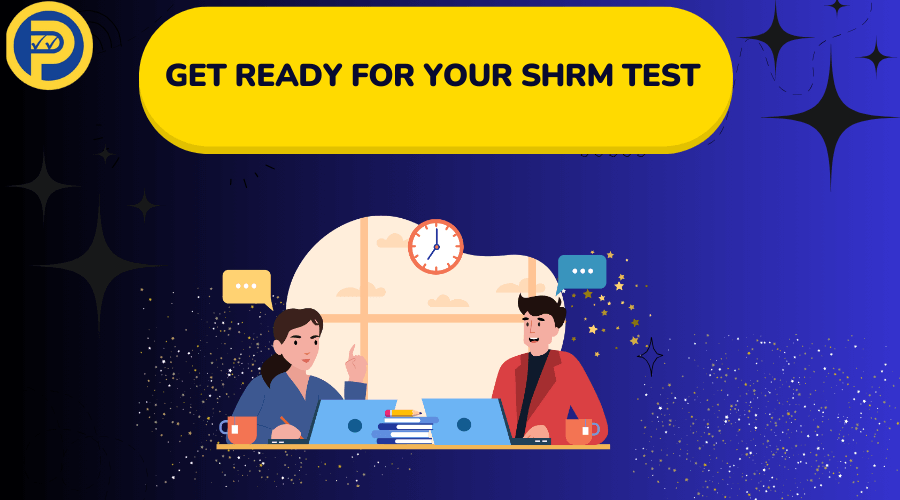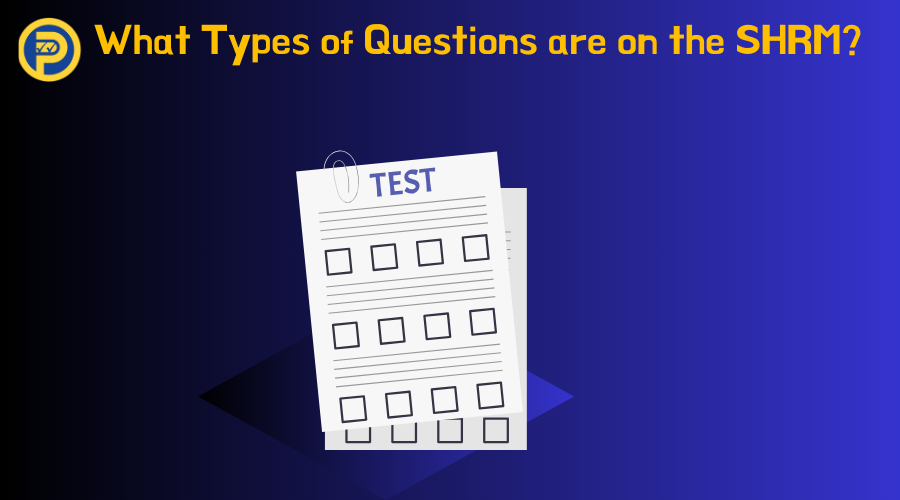As you prepare for the SHRM-CP or SHRM-SCP certification exam, it’s crucial to understand the exam structure and question format.
The exam content is drawn from the SHRM Body of Applied Skills and Knowledge (SHRM BASK), which is periodically updated to reflect a thorough analysis of the HR field.
The SHRM BASK encompasses two main competency areas: behavioral and technical. There are nine behavioral competencies that outline the general behaviors and traits an HR professional should exhibit in the workplace.
Additionally, one technical competency details the specific knowledge needed to excel in 14 HR functional areas. Each competency includes sub competencies and proficiency indicators that represent best practices in HR.
A solid grasp of these knowledge, skills, and abilities is key to excelling in an HR role.
To evaluate a candidate’s proficiency in these competencies, the SHRM certification exams include three types of multiple-choice questions: SHRM knowledge items, foundational knowledge items, and situational judgment items.
Continue reading: What’s On the SHRM Exam?
Knowledge Questions
Knowledge Questions (KIs) are a fundamental component of the SHRM certification exams. These questions assess a candidate’s understanding of HR concepts, theories, and practices.
They typically require test-takers to recall facts, definitions, and principles related to human resource management.
Characteristics of Knowledge Questions
- Fact-Based: Knowledge Questions focus on specific HR knowledge, such as laws, regulations, and best practices. For example, candidates may be asked about the Fair Labor Standards Act (FLSA) or the Family and Medical Leave Act (FMLA).
- Multiple Choice Format: These questions are often presented in a multiple-choice format, where candidates select the correct answer from several options. This format allows for straightforward assessment of knowledge retention.
- Direct Assessment: They assess a candidate’s ability to remember and apply HR knowledge in straightforward scenarios. A typical Knowledge Question might ask about the steps in the recruitment process or the components of an effective performance appraisal.
Examples of Knowledge Questions
- Legislation: “Which of the following acts prohibits employment discrimination based on race, color, religion, sex, or national origin?”
- HR Practices: “What is the primary purpose of conducting a job analysis?”
These examples illustrate how Knowledge Questions test a candidate’s grasp of essential HR concepts.
Situational Judgment Questions
Situational Judgment Questions (SJIs) are designed to evaluate a candidate’s decision-making and problem-solving skills in real-world HR scenarios. Unlike Knowledge Questions, SJIs assess how well a candidate can apply their knowledge to practical situations.
Characteristics of Situational Judgment Questions
- Scenario-Based: SJIs present candidates with hypothetical HR situations and ask them to choose the best course of action from multiple options. For instance, a scenario might involve a conflict between two employees, and candidates must determine the most effective resolution strategy.
- Focus on Judgment: These questions test a candidate’s ability to analyze a situation, consider various factors, and make informed decisions. Candidates must demonstrate critical thinking and ethical reasoning in their responses.
- Real-World Application: SJIs are designed to mimic the challenges HR professionals face in their roles, making them relevant and practical. This format encourages candidates to think like HR leaders and apply their knowledge to complex situations.
Examples of Situational Judgment Questions
- Conflict Resolution: “You notice two team members are not getting along, which is affecting their productivity. What is your first step in addressing this issue?”
- Performance Management: “An employee consistently misses deadlines. How would you approach this situation to ensure improvement?”
These scenarios require candidates to apply their HR knowledge and judgment in a practical context, emphasizing the importance of both theoretical understanding and real-world application.
The Difference Between Knowledge Questions and Situational Judgment Questions
Understanding the distinction between Knowledge Questions and Situational Judgment Questions is vital for effective exam preparation.
Key Differences
- Nature of Assessment: Knowledge Questions assess theoretical knowledge, while Situational Judgment Questions evaluate practical application and decision-making abilities. This distinction is crucial, as candidates must prepare for both types of questions to succeed.
- Question Format: Knowledge Questions are typically fact-based and multiple-choice, whereas SJIs are scenario-based and require candidates to select the best response to a given situation. This difference in format necessitates varied study approaches.
- Purpose: Knowledge Questions aim to ensure candidates have a solid foundation in HR principles, while SJIs focus on the candidate’s ability to navigate real-world HR challenges. This dual focus is essential for comprehensive HR competence.
Recognizing these differences helps candidates tailor their study strategies to address both types of questions effectively.
Areas Tested on SHRM-CP Exam
The SHRM-CP (Certified Professional) exam evaluates a candidate’s knowledge and skills in various HR areas. Key topics include:
- Talent Acquisition: Understanding recruitment strategies, interviewing techniques, and selection processes. Candidates should be familiar with different sourcing methods, including social media recruiting and employee referrals.
- Employee Engagement: Knowledge of employee motivation, retention strategies, and performance management. This includes understanding how to create a positive workplace culture and implement effective feedback mechanisms.
- Compliance: Familiarity with employment laws, regulations, and ethical practices in HR. Candidates must be aware of federal and state regulations, including OSHA, EEOC, and labor laws.
- Learning and Development: Insights into training programs, career development, and succession planning. This includes understanding how to assess training needs and evaluate the effectiveness of development programs.
These areas reflect the essential competencies required for HR professionals at the operational level.
Related post: What is the Passing Score for SHRM-CP?
Subjects Tested on the SHRM-SCP Exam
The SHRM-SCP (Senior Certified Professional) exam is more advanced and covers broader strategic HR topics. Key subjects include:
- Strategic Planning: Understanding how HR aligns with organizational goals and contributes to business strategy. Candidates should be able to articulate the role of HR in driving organizational success.
- Change Management: Knowledge of managing organizational change and fostering a culture of adaptability. This includes strategies for communicating change and engaging employees during transitions.
- Global & Cultural Effectiveness: Insights into managing a diverse workforce and understanding global HR practices. Candidates should be aware of cultural differences and their impact on HR policies and practices.
- Risk Management: Familiarity with identifying and mitigating HR-related risks within an organization. This includes understanding the implications of compliance failures and developing strategies to minimize legal exposure.
These subjects reflect the competencies needed for senior HR roles, emphasizing strategic thinking and leadership.
Read more: What is SHRM-SCP?
How Hard is the SHRM Exam?
The difficulty of the SHRM exam can vary based on a candidate’s preparation and background. However, several factors contribute to its challenging nature:
- Comprehensive Content: The exams cover a wide range of HR topics, requiring a thorough understanding of both foundational and advanced concepts. Candidates must be prepared to integrate knowledge from various HR disciplines.
- Application of Knowledge: Candidates must not only recall information but also apply it in practical scenarios, particularly in the Situational Judgment Questions. This requires a deep understanding of HR principles and their application in real-world contexts.
- Time Constraints: The exams are timed, which can add pressure and affect performance, especially for those who may need more time to think through complex scenarios. Effective time management strategies are essential for success.
- Pass Rates: Historically, SHRM certification exams have pass rates that indicate their rigor. Candidates should be prepared for a challenging experience and approach their studies with dedication.
Overall, candidates should expect a rigorous testing experience that demands a solid grasp of HR principles and practical application skills.
Continue reading: How Hard is the SHRM Test?
How to Prepare for the SHRM Exam
Effective preparation is key to succeeding in the SHRM certification exams. Here are some strategies to enhance study efforts:
- Utilize Official Study Guides: SHRM offers study guides and workbooks that include practice questions and explanations, helping candidates familiarize themselves with the exam format. These resources provide valuable insights into the types of questions that will be encountered.
- Engage in Group Study: Joining study groups can provide support, diverse perspectives, and accountability, making the preparation process more effective. Group discussions can help reinforce knowledge and clarify complex topics.
- Practice with Mock Exams: Taking practice exams such as the one offered in our SHRM-CP Test Prep and SHRM-SCP Test Prep can help candidates assess their knowledge, identify weak areas, and improve time management skills. Mock exams simulate the testing environment, allowing candidates to practice pacing themselves.
- Focus on the SHRM BASK: The SHRM Body of Applied Skills and Knowledge (BASK) outlines the competencies tested on the exams. Reviewing this framework can help candidates focus their studies on relevant topics and ensure comprehensive coverage of the material.
- Leverage Online Resources: Many online platforms offer courses, webinars, and forums dedicated to SHRM exam preparation. Engaging with these resources can provide additional insights and support.
- Create a Study Schedule: Developing a structured study plan can help candidates allocate time effectively and ensure they cover all necessary topics before the exam date. Consistency is key to retaining information.
By employing these strategies, candidates can enhance their readiness for the SHRM certification exams and increase their chances of success.
Check out: What is the Best Way to Prepare for the SHRM?

What Strategies Can Help in Answering SHRM Exam Questions effectively?
To effectively answer SHRM exam questions, employ several key strategies. First, practice time management by allocating specific time limits for each question, ensuring you can complete the exam.
Second, utilize the process of elimination for multiple-choice questions, narrowing down options to increase your chances of selecting the correct answer. Additionally, read each question carefully, identifying keywords and phrases that highlight the main concept.
Lastly, review the SHRM Body of Competency and Knowledge (SHRM BoCK) to align your study materials with the exam content. By implementing these strategies, you can enhance your confidence and performance on the SHRM exam.
Try out: SHRM-SCP Free Questions
FAQS
What Does the SHRM Exam Consist Of?
The SHRM-CP and SHRM-SCP exams each consist of 134 multiple-choice questions, with a time limit of 3 hours and 40 minutes.
The questions are divided into two categories: stand-alone knowledge-based items that assess factual knowledge, and scenario-based situational judgment items that evaluate decision-making skills.
Approximately half of the questions cover behavioral competencies, while the other half assess HR knowledge domains. Additionally, there are 24 unscored field-test items used for research purposes.
The exams can be taken at authorized testing centers or through live remote proctoring.
How Hard is it to Pass the SHRM Exam?
Passing the SHRM exam can be challenging due to its focus on situational judgment and the application of HR concepts rather than rote memorization.
The SHRM-CP and SHRM-SCP exams consist of 134 questions and require a solid understanding of HR practices and decision-making skills.
Many candidates report needing 2-3 months of dedicated study to prepare effectively. The pass rates have fluctuated, with recent data indicating a significant drop, suggesting increased difficulty.
However, some individuals with substantial HR experience have passed without extensive preparation, highlighting the importance of practical knowledge in addition to study materials.
How Many Questions Can You Get Wrong on the SHRM Exam?
The SHRM-CP and SHRM-SCP exams consist of 134 questions, but only 110 are scored. To pass, candidates must achieve a scaled score of 200.
The exact number of questions you can answer incorrectly varies, as the passing score is not fixed and can differ slightly between exam administrations.
Candidates are not penalized for incorrect answers, meaning guessing is encouraged if unsure. Therefore, the number of questions you can get wrong while still passing is not explicitly defined and can change based on the exam form and scoring adjustments made by SHRM.

